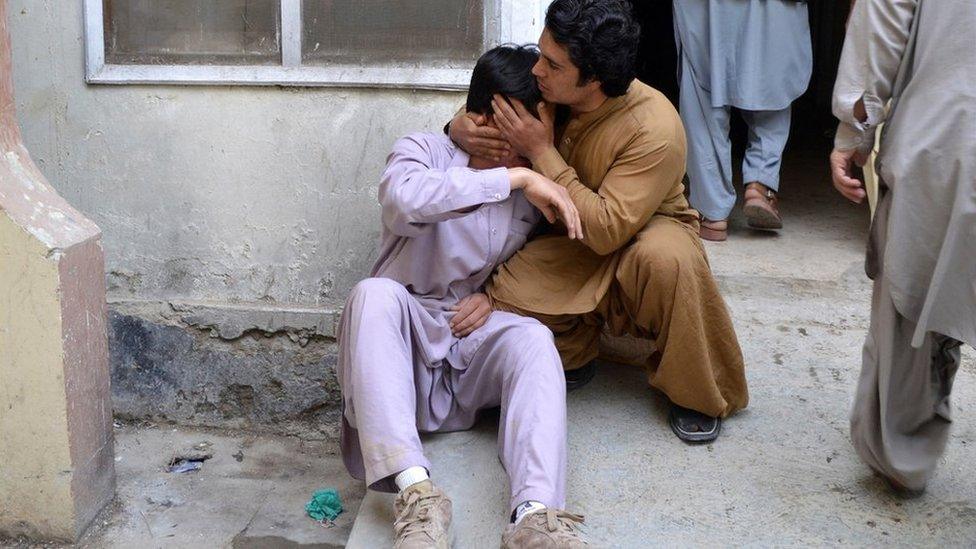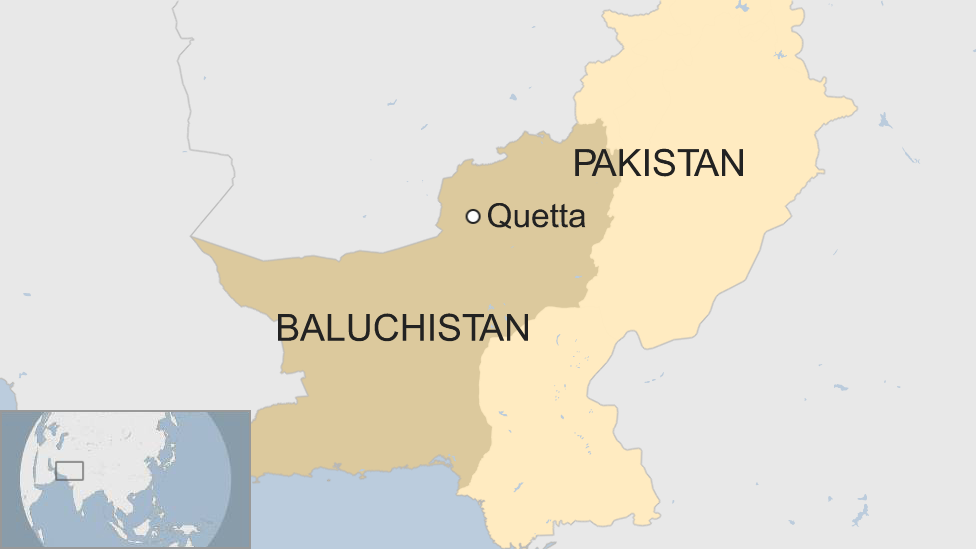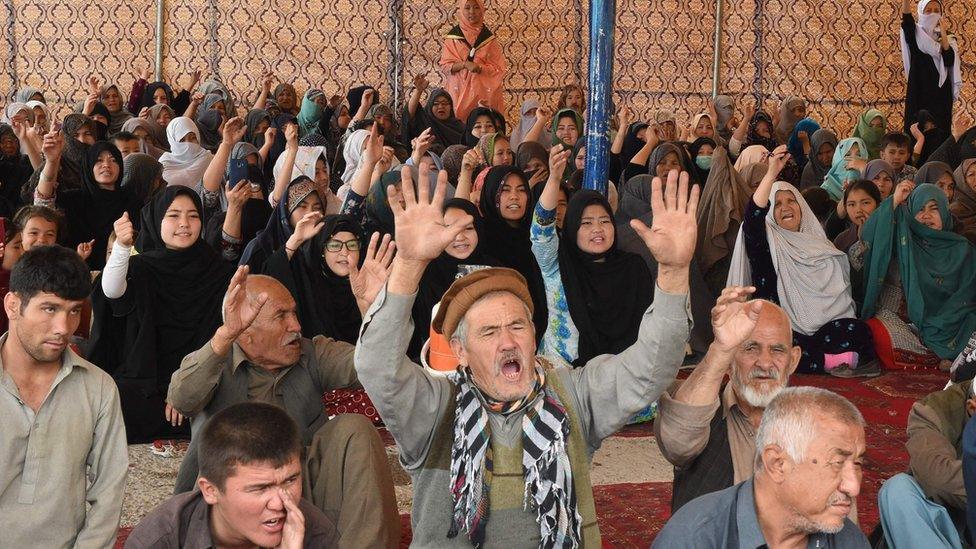Pakistan Hazara minority protests after bombing in Quetta
- Published

Relatives mourned the dead outside hospital on Friday
Dozens of men, women and children from Pakistan's minority Hazara community have held a protest in the city of Quetta demanding better security.
The sit-in started hours after 24 people were killed and dozens injured in a bomb blast at a vegetable market in the south-western city.
Many victims were from the Hazara community, who are mainly Shia Muslims.
The community has been frequently targeted by extremists from Pakistan's Sunni Muslim majority.

Both the Pakistani Taliban and the Sunni militant group Islamic State (IS) said they had carried out the attack.
Quetta, a city in Baluchistan province that is home to more than half a million Shia Hazara, has witnessed the majority of IS attacks in Pakistan.
A man disguised as a labourer detonated a bomb inside the Hazar Ganji, a fruit and vegetable market on the outskirts of Quetta, city police chief Abdul Razzaq Cheema was quoted as saying by Reuters news agency.

Hazara mourners gathered to protest on Saturday
Baluchistan Chief Minister Jam Kamal Khan Alyani condemned the attack, promising the "best possible" medical care for the injured, according to Pakistan news website Dawn.
Those guilty were enemies of humanity, he said.
Amnesty International's Deputy South Asia Director, Omar Waraich, condemned the attack, saying: "This horrific loss of life is a painful reminder of the threats, external that Quetta's Hazara community continues to face.
"Targeted for their religion by sectarian armed groups, they have suffered many such tragedies over several years. Each time, there are promises that more will be done to protect them, and each time those promises have failed to materialise."

Who are the Hazara?
Of Mongolian and Central Asian descent
Legend has it they are descendants of Genghis Khan and his soldiers, who invaded Afghanistan in the 13th Century
Mainly practise Shia Islam, in predominantly Sunni Afghanistan and Pakistan
At least 600,000 live in Quetta, mostly migrants from Afghanistan
Quetta is also on a key Shia pilgrimage route to Iran
